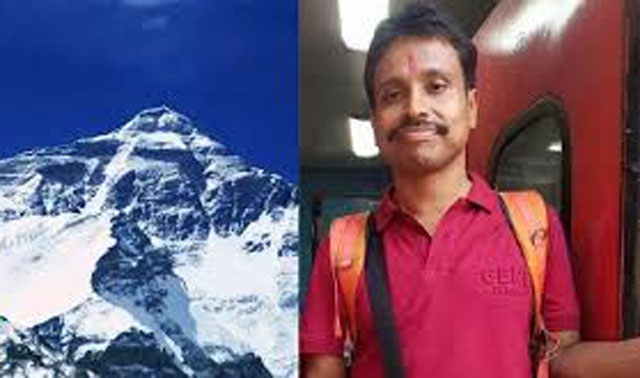Daijiworld Media Network- New Delhi
New Delhi, May 16: In a tragic turn of events high in the Himalayas, 45-year-old Indian climber Subrata Ghosh from West Bengal lost his life on Mount Everest after reportedly refusing to descend from the summit point, citing extreme exhaustion and signs of altitude sickness.
The incident occurred on Saturday, just below the Hillary Step, a perilous section close to the summit of the 8,848.86-metre peak. Ghosh had reached the top around 2 pm, considered unusually late for a summit attempt, according to Bodhraj Bhandari, Managing Director of Snowy Horizon Treks.

Champal Tamang, the Sherpa guide accompanying Ghosh, stated that during the descent, the climber became dangerously exhausted. Despite repeated attempts to assist him, Ghosh allegedly refused to continue the descent, eventually succumbing to the effects of high-altitude sickness. Tamang managed to return to Camp IV late in the night and relayed the heartbreaking news on Sunday morning.
Ghosh becomes the second climber to die on Everest this spring. Just days ago, 45-year-old Philipp II Santiago from the Philippines died while preparing for his summit bid on May 14.
Ghosh was part of the Mountaineering Association of Krishnanagar – Snowy Everest Expedition 2025. Rescue teams are now engaged in a challenging effort to bring his body back to the base camp.
This climbing season has seen over 50 successful ascents already, with more than 450 climbers granted permits. While Everest continues to attract global adventurers, it remains an unforgiving giant where the margin for error is perilously thin.
Subrata Ghosh’s tragic end underscores the relentless danger the world’s highest peak presents—even to the experienced and determined. His death is a solemn reminder that while Everest’s summit may be a dream, the descent is often the true test of survival.